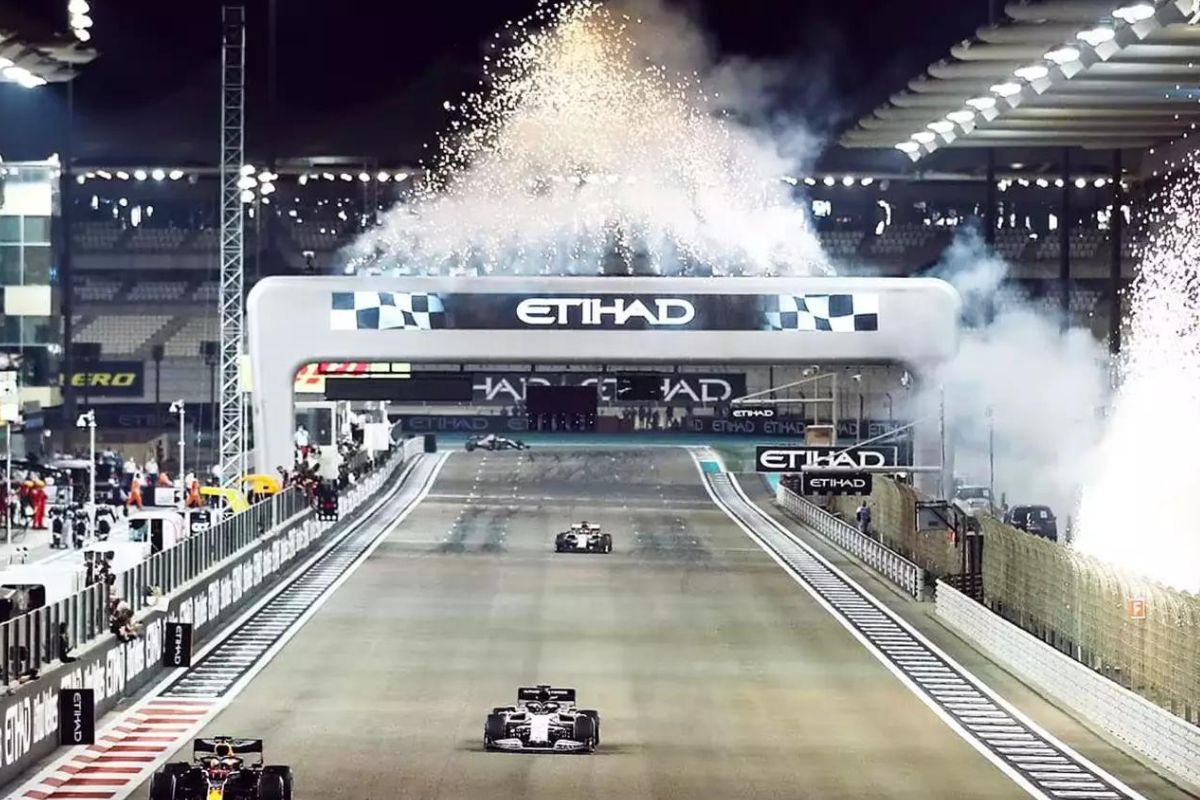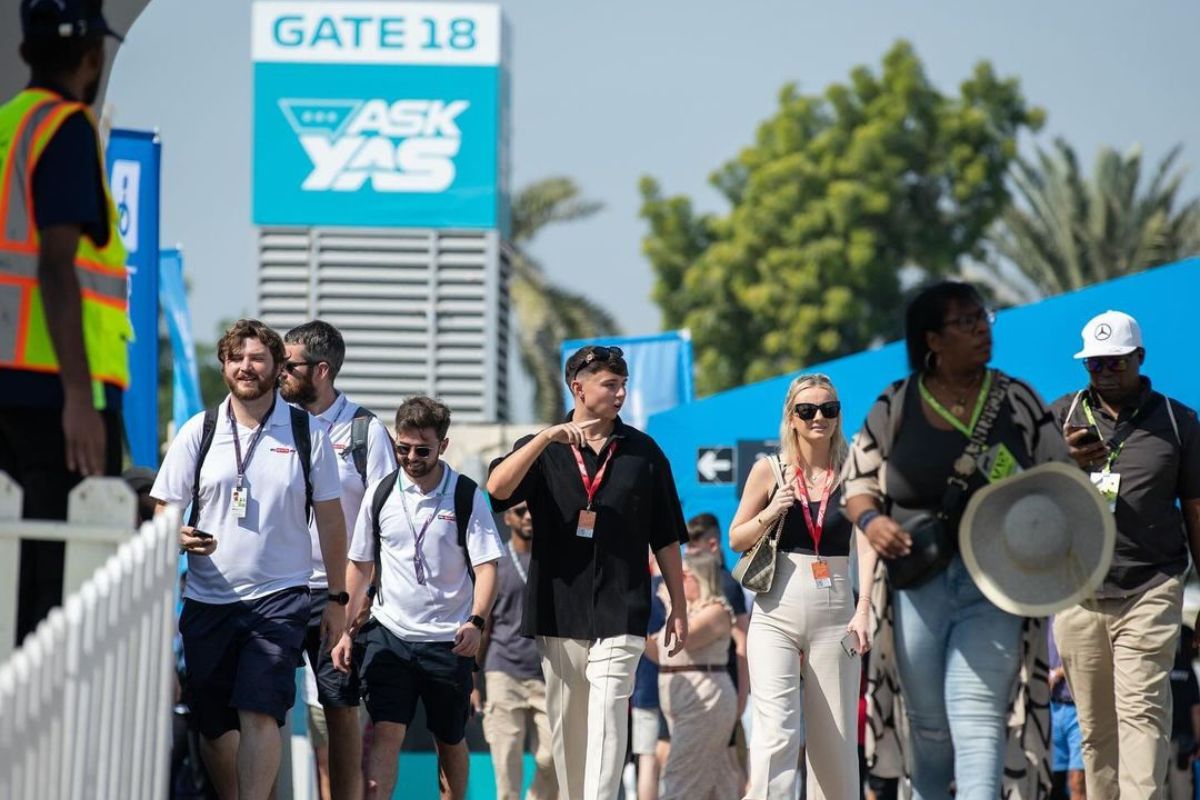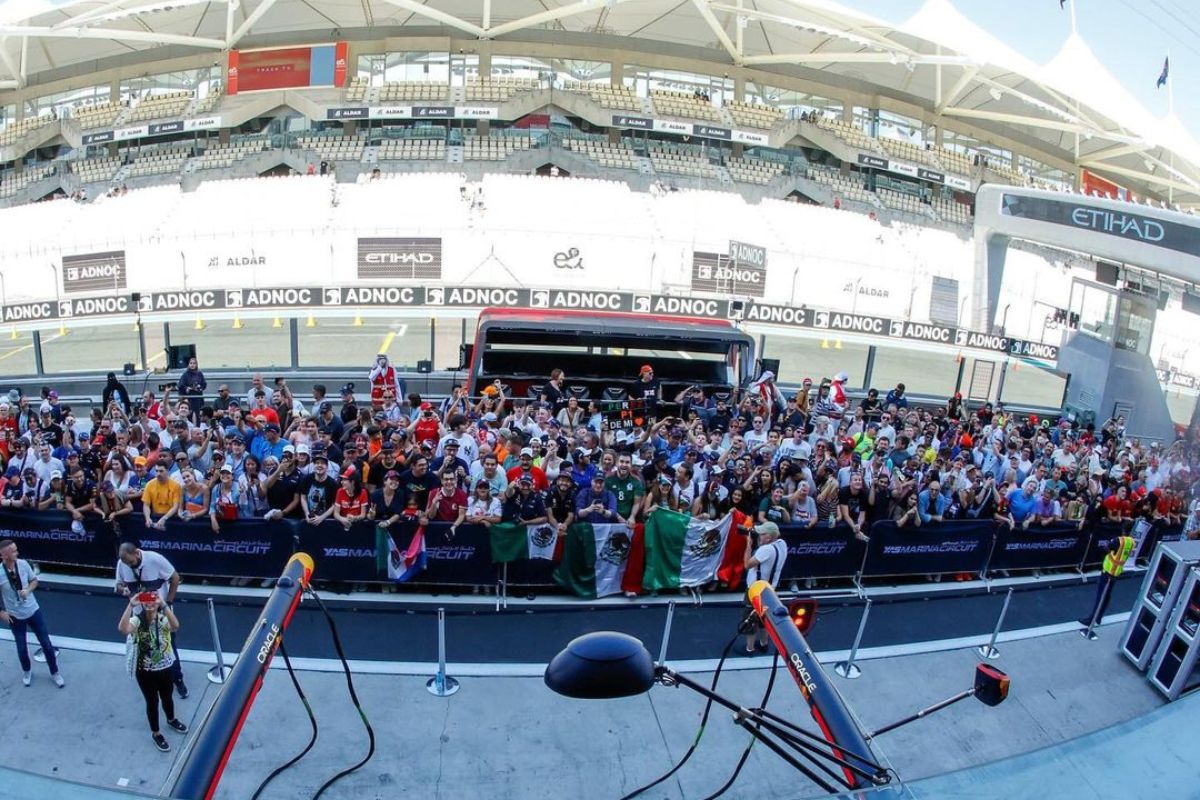
Christian Pollhammer and Simon Price guided us around the facilities at F1 headquarters in Abu Dhabi
When the last car passes the finish line on Sunday afternoon at the Etihad Airways Abu Dhabi Grand Prix, you could be forgiven for thinking that is the final act that brings the curtain down on another drama fueled season for F1.
However, behind the scenes and in the trenches, the work rallies on as it has done all year long for the huge entourage of staff who converge to make worldwide events like F1 happen for nine months of the year.
In fact, although never out of the limelight, the drivers and their teams are only the tip of the iceberg when it comes to putting this mammoth show together, as we learned after paying a visit to Yas Marina Circuit this week.
You might also like: Abu Dhabi F1 weekend gets the green light from authorities
Christian Pollhammer and Simon Price guided us around the facilities at F1 headquarters in Abu Dhabi. Both men, representing F1 and DHL respectively, took it in turns to point out the logistical masterclass that takes place to ensure the successful running of any race.
“It’s hard to believe it but the cars that we see being assembled today were only in Las Vegas two days ago. We have had seven fully chartered planes in the sky in the meantime and we only had a 20-minute delay overall, not a bad turnaround,” Christian quips with a wry smile on his face.
Indeed, it is some achievement by all accounts. To envisage a full F1 operation being transported by sea and sky halfway around the world in just two days to be set up for this weekend’s race is almost unthinkable. By Wednesday morning, however, it is mission accomplished.
“There are over 1000 employees working on these sites at any one time, all doing their best to get the race set up in different ways. We are like one big family helping each other out all the time,” he added.
Christian also provided some insight into life behind the scenes for the drivers and their teams who spend a lot of time on the road away from their families.
“The F1 teams themselves bring most of their own entourage. This may seem bizarre but in the case of the drivers, for instance, their eating habits vary, and they want their own personal chefs to provide some home comforts. It also maintains morale within the groups too.”
He also revealed that some of the teams, such as Mercedes for instance, might have as many as over 400 staff on site the day of the race to tend to their needs.
The logistical and successful running of the F1 event is not just encapsulated by the work of the F1 and DHL staff, it is also ensured by the many people working in various media outlets who provide much needed coverage and exposure of the thrilling sport.

One such contributor is renowned F1 TV commentator Damien Reid, who has poured his life into his microphone, and the sport, for over 20 years now.
Representing Saudi Sports, who broadcast the spectacle to over 21 million people in the middle east, Damien has grown up with F1 in Abu Dhabi and been here since its very inception in 2006.
“I remember this place when it was little other than desert. Dubai was looking to host it in the mid-00s and then that broke down and Abu Dhabi swooped in and within two years we had our first Grand Prix.”
Acting as one of the advisors on the initial panel that was put together to plan the inaugural event, the Sydney born commentator confirmed that the sport is in a very healthy place in the middle east with four races taking place in the region, more than any other district in the world.
“The power is shifting all the time. F1 is growing in the region at an enormous rate and it is hoped that due to this explosion of interest in the sport that the day is not too far away that an Arab driver will spring to prominence.”

Damien also revealed that the UAE capital is unique in that it is built from the top down, instead of from grassroots.
“Most Grand Prix strongholds around the world built their F1 from the bottom up, in that there are strong F2 and F3 grades which support the top drivers. In Abu Dhabi, because motor sport was so new, that wasn’t possible, so the whole thing has been constructed from the top down.”
Constructed from the top down indeed. Relevant words in the circumstances when one considers the colossal effort of all concerned to get this race in Abu Dhabi, and all the other international races sprawled throughout the world, on in time.
The checkered flag this Sunday evening may spell the end of this year’s journey for the racers, but for the thousands of staff behind the scenes who ensure events run smoothly, it is the signal that planning for next year’s campaign is set to begin in earnest again.
For further information on news around the capital, visit Yalla Abu Dhabi Life
